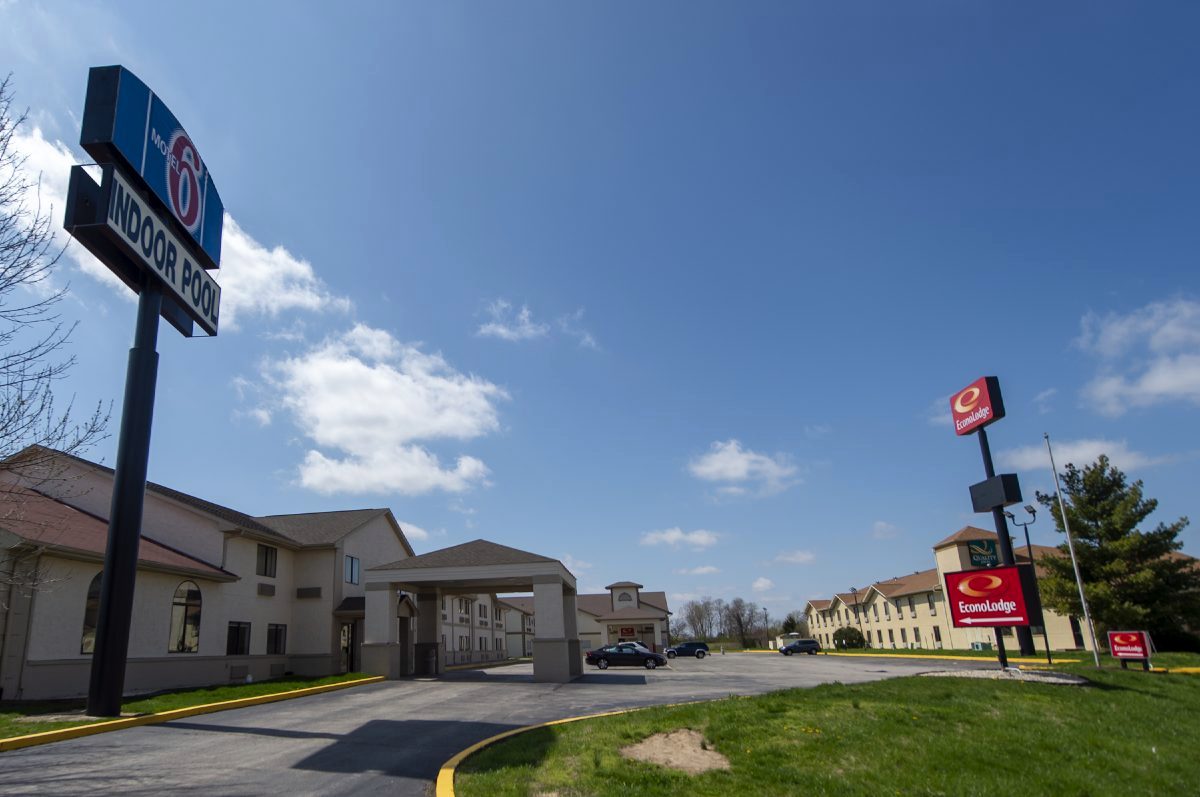Leisure travel has increased following months of coronavirus-related closures and restrictions, but hotels that rely on business travel are lagging behind.
In April, at the height of the hospitality industry’s downturn, Johnson County Inn Keeper’s Tax collections were down more than $16,000 compared to the same time last year. For July, collections are about $1,200 lower than last year, showing marked progress.
For leisure travel-reliant operations, such as the Flying Frog Bed and Breakfast in Franklin, business has normalized. As is typical in late summer and early fall, the inn has a waiting list on the weekends, said Sharon Isselhardt, who owns the business with her husband.
[sc:text-divider text-divider-title=”Story continues below gallery” ]
With just four rooms to rent, both new and returning guests have felt safe visiting, Isselhardt said. The experience is made even safer by serving breakfast outside and requiring masks when guests venture out of their rooms, she said.
“As soon as we opened, we had people wanting to stay,” Isselhardt said. “A lot of our guests are repeat guests. They are looking to get away and they know that we are a great place to stay and Franklin is a great place to go.”
But Johnson County may be seeing nearly normal tax collections due to the county’s location. Data from the American Hotel and Lodging Association suggests consumers feel more comfortable staying in the suburbs as a reaction to riots in urban areas across the county.
Though some parts of the travel industry are regaining strength, across the country that picture is much bleeker.
Nationwide, four in 10 hotel employees are still unemployed, and two-thirds of hotels are below 50% occupancy, according to a report from the hotel and lodging association. A survey conducted for association’s report indicates only 38% of Americans planned to travel this year, whereas about 70% of Americans typically travel for vacation each year.
With fewer folks vacationing and businesses halting travel, the hotel industry is suffering. Last week alone, travel spending was down $9.4 billion, with travel spending in Indiana down $99 million, compared to the same time last year.
For Columbus-based Sprague Hotel Developers, the association’s report about sums up the hotel development company’s struggles during the pandemic, said Nicholas Sprague, director of business development. The company manages hotels around the state, including several on the southside of Indianapolis, several in Edinburgh, and two new Franklin hotels.
Sprague hotels saw a slow down in travel, and were hit particularly hard by business travel losses. Travel ball tournaments and leisure travel this summer helped boost occupancy, but it has been far from business as usual, he said.
“Every hotel had to furlough or make reductions. It was just the reality,” Sprague said. “It was something I found very difficult. We had provisions in our handbook about laying people off for a short amount of time, but we never thought we would have to do it.”
Statewide, hotel occupancy is about 51% on average, 17% lower than it was last year, according to data from Visit Indiana. Though occupancy rates are improving, industry leaders say they will continue to struggle to pay their bills and bring back workers until those occupancy rates go up.
To draw in guests, hotels have shifted marketing efforts to emphasize cleanliness, Sprague said. For example, the new Hampton Inn in Franklin, a Hilton-branded hotel, comes with a Hilton CleanStay guarantee, a cleaning regime developed with Lysol and the Mayo Clinic to keep guests safe from check-in to check-out, he said.





